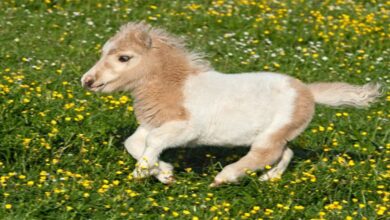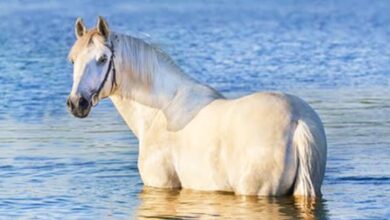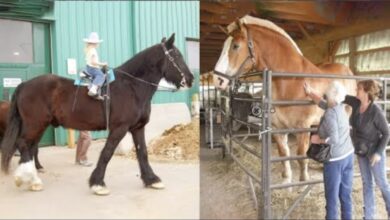You Would Want a Horse After Finishing This Funny Video!
In prehistoric times the wild horse was probably first hunted for food. Research suggests that domestication had taken place by approximately 6,000 years ago. It is supposed that the horse was first used by a tribe of Indo-European origin that lived in the steppes north of the chain of mountains adjacent to the Black and Caspian seas. Influenced by climate, food, and humans, the horse rapidly acquired its present form.
The relationship of the horse to humans has been unique. The horse is a partner and friend. It has plowed fields and brought in the harvest, hauled goods and conveyed passengers, followed game and tracked cattle, and carried combatants into battle and adventurers to unknown lands. It has provided recreation in the form of jousts, tournaments, carousels, and the sport of riding. The influence of the horse is expressed in the English language in such terms as chivalry and cavalier, which connote honor, respect, good manners, and straightforwardness.
The horse is the “proudest conquest of Man,” according to the French zoologist Georges-Louis Leclerc, comte de Buffon. Its place was at its master’s side in the graves of the Scythian kings or in the tombs of the pharaohs. Many early human cultures were centred on possession of the horse. Superstition read meaning into the colous of the horse, and a horse’s head suspended near a grave or sanctuary or on the gables of a house conferred supernatural powers on the place. Greek mythology created the Centaur, the most obvious symbol of the oneness of horse and rider. White stallions were the supreme sacrifice to the gods, and the Greek general Xenophon recorded that “gods and heroes are depicted on well-trained horses.” A beautiful and well-trained horse was, therefore, a status symbol in ancient Greece. Kings, generals, and statesmen, of necessity, had to be horsemen. The names of famous horses are inseparably linked to those of their famous riders: Bucephalus, the charger of Alexander the Great; Incitatus, once believed to have been made a senator by the Roman emperor Caligula (see Researcher’s Note); El Morzillo, Hernán Cortés’s favorite horse, to whom the Indians erected a statue; Roan Barbery, the stallion of Richard II, mentioned by Shakespeare; Copenhagen, the duke of Wellington’s horse, which was buried with military honors.





